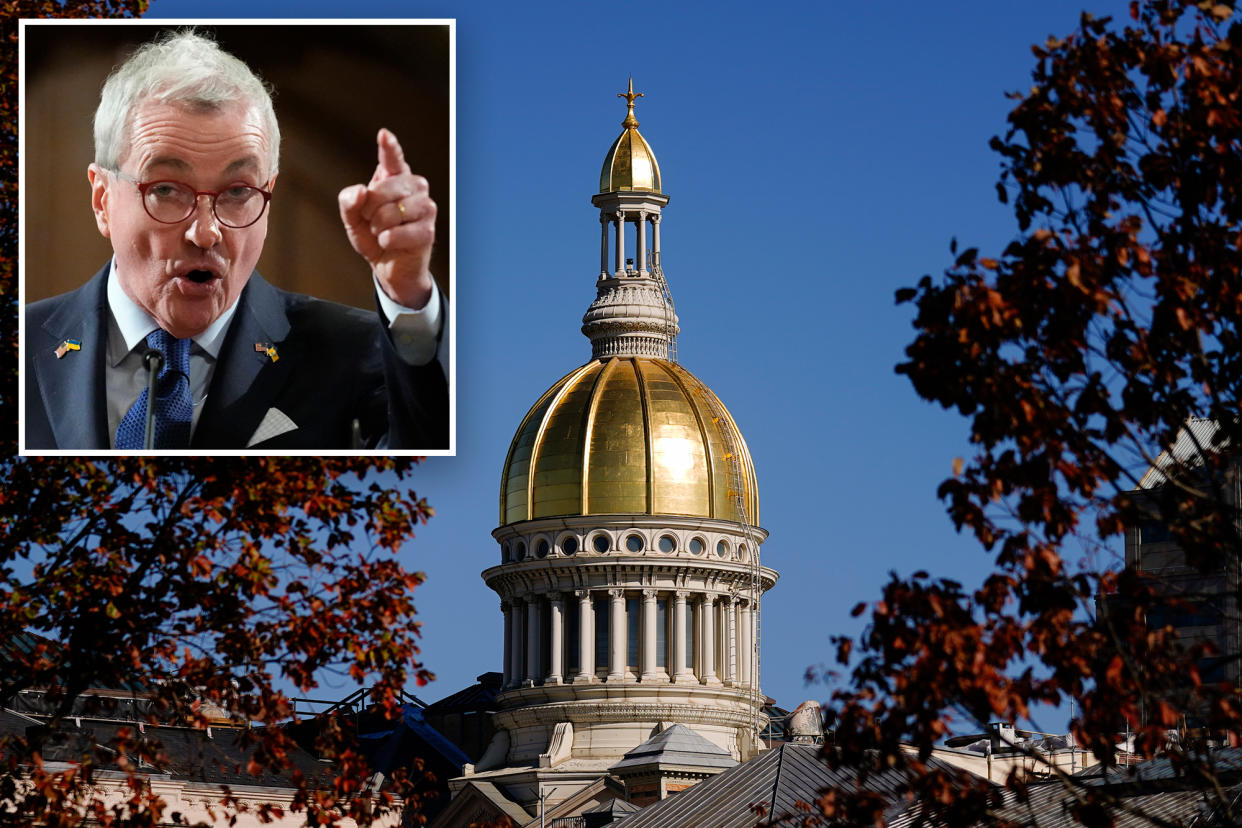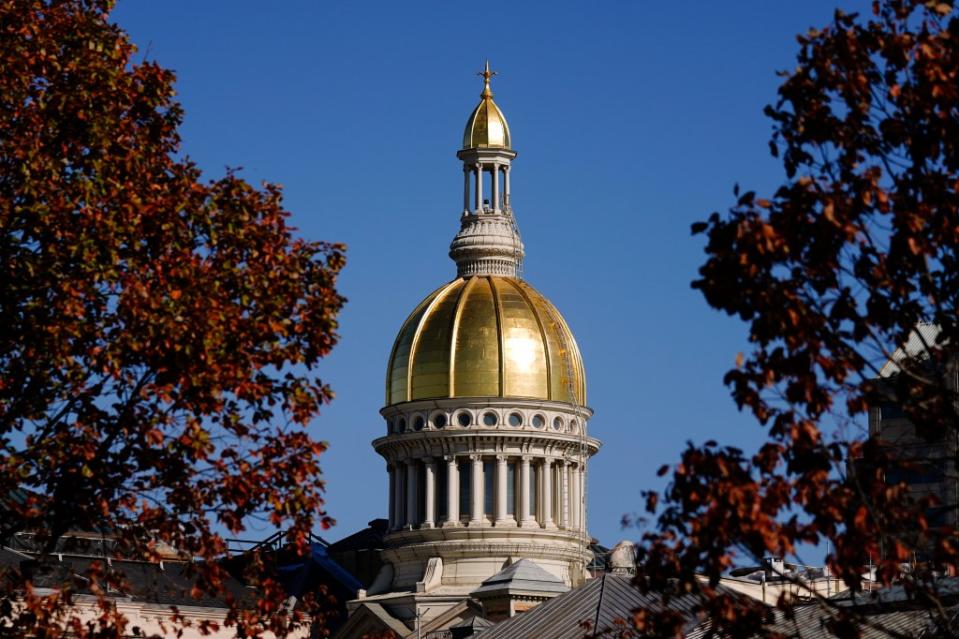NJ lawmakers pull bill that would give them power to block info from public after backlash

- Oops!Something went wrong.Please try again later.
New Jersey state lawmakers did an about-face on a controversial bill that critics said would have given government bureaucrats and politicians more power to block information from the public.
Some Garden State Democrats had looked to fast-track the bill to change the state’s open records law but backed off on Thursday, pulling the proposal before a key committee could vote to advance it.
The decision was hailed as a victory for open-government advocates who fought tooth and nail to kill it — even though it may not be gone for good.
“Democracy only functions when the voice of the people is heard, and today, we were heard,” Sarah Fajardo, policy director for the ACLU of New Jersey, told The Post in a statement. “That this rushed effort to roll back transparency was poised to pass via backroom deals without public input is lost on no one, and New Jerseyans deserve better.”

Lawmakers had tried to portray the bill — S-2930 in the state Senate and A-4045 in the General Assembly — as a “reform” to the 22-year-old law that would hamstring profiteers and data brokers who inundate towns with requests, then sell the information to third parties.
But transparency advocates — who slammed the legislation as an assault on the public’s right to know — said the changes would have made it easier for government agencies to withhold documents and deny requests.
“This is an attack on transparency and part of a disturbing trend in the New Jersey Legislature, where lawmakers decrease public access to information under the guise of ‘transparency,’” said a letter to legislative leaders written by the League of Women Voters, the ACLU, and the Working Families Party.
But despite the opposition — which included labor leaders, the state Office of the Public Defender, the comptroller’s office, and the leading Democratic candidates for US Senate, Rep. Andy Kim and first lady Tammy Murphy — party majorities in the state seemed ready to ram the bill through.
That changed Thursday when Assembly Speaker Craig Coughlin (D-Middlesex) pulled it from the committee agenda.
“I appreciate the concerns raised about A-4045,” Coughlin wrote in a statement posted on X. “Right now, we are working on various amendments to ensure we get the bill right … and so the bill will not be heard for consideration today.
“We will take the time needed to meet with various stakeholders to modernize [the law] in a way that protects the public from having their personal information, driver’s license numbers, and other sensitive information available for anyone to see,” the speaker continued.

As it stands, the law lays out a path for any member of the public — including journalists and reporters — to request records that might have otherwise remained hidden.
But there are a number of exceptions already built into the statute.
For instance, police departments aren’t obligated to release some investigatory records, town officials must redact personal information such as Social Security numbers and requests for elected officials’ emails can be denied for being “overly broad.”
Still, the information garnered from such requests has had tremendous effects on local — and, in some cases, national — politics.
Jennifer Borg, a former in-house attorney for the Record newspaper, testified before lawmakers that without the law — colloquially known as “OPRA” — no one would have ever known about the Bridgegate scandal. That scandal saw members of then-Gov. Chris Christie’s administration conspire in 2013 to close traffic lanes leading to the George Washington Bridge, according to the Record.
Defenders of the new bill claimed that updating the law was necessary to help cut the number of requests pouring into local government offices — especially from the aforementioned commercial interests.
“I look at this as a modernization of OPRA,” said state Sen. Paul Sarlo (D-Bergen), the bill’s sponsor and budget committee chairman. “We want to stop people from profiteering from OPRA on the backs of the taxpayers.”
But the bill also would have required records custodians to redact identifying information that they think might lead to “harassment” — which critics skewered as a vague dictum that might lead to unnecessary blackouts on public documents.
Beyond that, it would have freed custodians of the obligation to digitize records, removed immediate access rights for records such as budgets and contracts if they’re more than a year old, and required requesters to fill out a specific form ostensibly created by the agency from which they’re seeking data.
It would also limit the disclosure of public officials’ text messages, emails and correspondence unless the inquisitor lists a specific subject and timeframe — which would severely hamper reporters’ attempts to reveal public corruption.
And it would let custodians — often the local town clerk — sue in state court requestors who “sought records thereunder for the purpose to harass a public agency, or to substantially interrupt government functions.”

If the court agreed, it could “eliminate the public agency’s duty to respond to government records requests in the future.”
But it wasn’t just members of the media who hated the bill — it managed to unify politicians on both sides of the aisle.
For instance, former Senate Majority Leader and political lion Loretta Weinberg (D-Bergen) called it an embarrassment and urged lawmakers to shut it down.
“This is a complete gut of OPRA and Sen. Sarlo has been planning it for a long time,” she said in a post on X. “It should be stopped! Please do not turn NJ backwards. Call ur Senators.”
Meanwhile, Assemblymen Brian Bergen (R-Morris) — a combat veteran who serves as the party whip in the lower chamber — opposed it just as vehemently, saying it would have a chilling effect on public records requests.
“There are adjustments to OPRA that may make sense,” Bergen told The Post on Thursday. “But they just took everything way too far. You’ve got to err on the side of transparency when it comes to government. People expect that, and they deserve it.”
When asked if he thought the proposal would result in less transparency, Bergen said, “Hell yeah it would.”
“OPRA curtails corruption,” he said. “This bill would have opened the door back up for widespread corruption. And that’s not good.”
With Post wires

